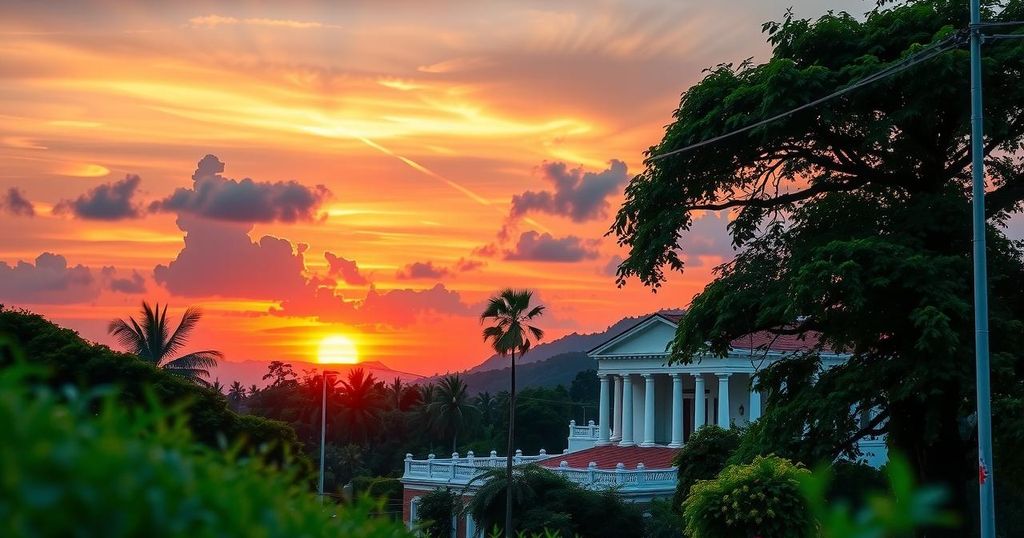Sierra Leone Enacts Controversial Counter-Terrorism Laws Amid Rising Authoritarianism
Sierra Leone has enacted controversial counter-terrorism laws, alarming citizens who criticize President Julius Maada Bio. These laws may worsen the already severe political climate, leading to greater oppression of dissenters. Critics argue that the legislation was rushed without public consultation, further threatening the country’s democracy.
Sierra Leone has recently enacted counter-terrorism laws that parallel those of North Korea, significantly heightening the risks for citizens, particularly those who openly criticize the government of President Julius Maada Bio. This development follows a troubling trend of state-sanctioned violence against dissenters, as evidenced by over 200 deaths of young protesters during Bio’s administration since his election in 2018.
These new laws provide the ruling Sierra Leone People’s Party (SLPP) with the legal framework to intensify its crackdown on political opposition and individuals expressing dissent on social media. Critics have raised concerns that the legislation was expedited through parliament without adequate public consultation, aided by a lackluster response from the main opposition party, the APC.
The increasingly authoritarian tendencies of governments in developing nations, such as Sierra Leone, reflect a broader deterioration of democratic norms and human rights, particularly accelerated by international political shifts. The existing cyber laws in Sierra Leone are already among the most severe globally, and the new counter-terrorism measures are anticipated to further undermine the nation’s fragile democratic infrastructure.
Instead of imposing harsh laws, experts argue that Sierra Leone must focus on establishing robust institutions led by dedicated and principled leaders, who will prioritize uplifting the populace from persistent poverty and ensuring civil liberties.
The enactment of counter-terrorism laws in Sierra Leone poses significant threats to political freedom and civil rights. Under the guise of maintaining order, the regime has intensified its repressive tactics against dissenters, potentially stifling democracy. The country would benefit more from strengthening its institutions and leadership rather than enacting draconian laws that jeopardize its fragile democracy.
Original Source: www.thesierraleonetelegraph.com




Post Comment